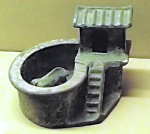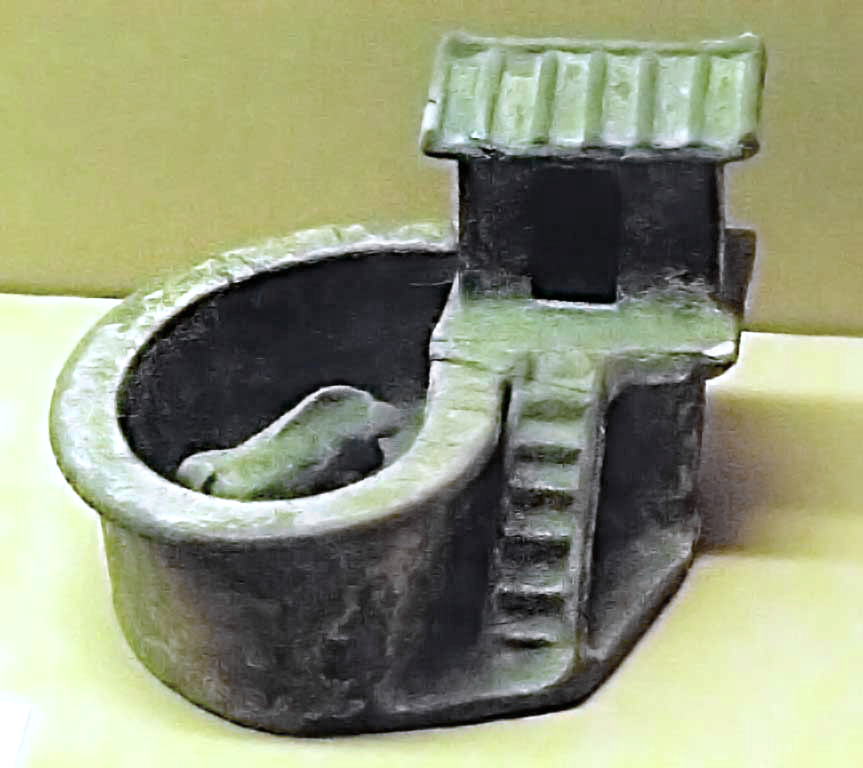PTSD i modern bemärkelse började uppmärksammas under 1VK. Skyttegravskriget ledde till en långvarig krigsstress som sällan förekommit tidigare.
Bret Devereaux om detta:
"In this case, we have to ask –
before we go looking – what would evidence of PTSD in ancient societies (I’m going to start there because it is where I am best informed) look like?
Well, ancient societies engaged in a
lot of warfare. Among the citizenry – the sort of fellows who write to us and are written about in our sources – combat experience was almost ubiquitous. That only really changes as we get into the Roman Empire, as violence levels both decline generally and are pushed to the frontier via a professional army. The percentage of veterans in the citizen population (again,
citizen here is an important caveat, but then those fellows basically
are our primary source base) probably equaled that of the WWI generation in Britain or France, except
all the time (there’s a point in the Second Punic War where the Roman censors went through the entire rolls, checking to see how many had managed to avoid military service and found only a few thousand in a citizen body of c. 150,000 adult males).
So what ought we expect from our sources? We should expect to see signs of PTSD
everywhere.
It should be absolutely pervasive in a source-base produced almost entirely by, for and about combat veterans, in societies where military mortality exceeded modern rates by a robust margin.
And it simply isn’t there. There is one
very frequently cited account in Herodotus (Hdt. 6.117) of a man named Epizelos experiencing what is generally understood as ‘conversion disorder’ (which used to be badly labeled ‘hysterical blindness’) in combat. Without being wounded he went blind at a sudden terror in battle and never recovered his sight. Herodotus terms it a θῶμα – a ‘wonder’ or ‘marvel,’ a word that explicitly implies the strange uncommonness of the tale. Herodotus is concerned enough about how exceptional this sounds that he is quick
not to vouch for its veracity – he brackets the story (beginning and end) noting that it was what he was told (by someone else) that Epizelos
used to say happened to him. In short, this was uncommon enough that Herodotus distances himself from it, so as not to be thought as a teller of tall-tales (though Herodotus is, in fact, a teller of tall tales).
This one example – cited endlessly and breathlessly in internet articles – is remarkable not because it is typical, but because it is apparently
very unusual (also, it is my understanding – with the necessary caveat that I am not an expert – that while conversion disorder is a consequence of emotional trauma, it is not clear that it is associated with PTSD more generally). Meanwhile, in the war literature of the Romans, in their poetry (including that by folks like Horace, who fought in quite terrible battles), in the military literature of the Greeks, in the reflections of Xenophon (both on his campaigns and his commands), in the body of Greek lyric poetry…all of it –
nothing. It is simply not there – not as a concern that such a condition might befall someone, nor a report that it had done so.
Nothing. The
lacuna baffled me for years."
*
"
Moreover, these societies tended to have rituals surrounding the transition out of war. There were ritual purifications for a Greek or Roman army returning from battle. Offerings to be made to the gods for survival or triumph. Priests who could tell you “if you are bothered,
do this and it will be ok.” In the medieval world too, there were religious experts who could tell you the rituals necessary to come back to a right relationship with both God and your society. Of course many veterans turn to religion for comfort, but most modern religious traditions respond with the same ‘yes, but…’ and ‘necessary evil’ approach. For the Roman
miles or the medieval knight, there was no such ambiguity:
do these rituals and all is well. Placebos are powerful and I suspect that sort of thing also aided the transition from war to peace, providing a sense of closure that it is hard for our societies to provide (I suppose the Roman would merely suggest that we were foolish to
stop doing rituals which had obviously worked so well)."
Hey folks! Fireside this week, but next week, to celebrate the one-year anniversary of the blog (the first post went up May 3rd) we’re diving into a look at Helm’s Deep in both the book…

acoup.blog







